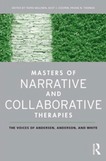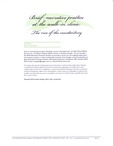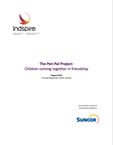The past decade has seen an emerging wave of literature about bullying and bullying prevention by many fine Canadian researchers. We have also seen legislative change attempting to bring greater follow through and consequence for bullying episodes as well as support for those experiencing bullying. Although the bullying prevention movement grows the problem remains elusive. Despite great investment, the bullying prevention conversation has remained a narrow conversation with stock plot characterizations of people and minimally effective responses to the problem.
Bullying prevention informed by the ideas of narrative therapy creates a context to expand the conversation further and broaden prevention initiatives. Through a narrative therapy lens ‘the problem’ comes under scrutiny as broader implications of uses of power and the effects of discourses are taken into account. The problem, re-conceptualized as relationally shaped and influenced by culture and context, brings to the foreground many individual, collective, and community responses. These responses are found in the experiences and know-how of all involved and when shared provide a meaningful foundation for a whole community approach to bullying prevention. Conversations we have about bullying also change. Ways to respond to bullying episodes that invite responsibility while preserving dignity will be explored.
Youth engagement is an important part of this process assisting to provide a forum for the experiences and know-how of youth to come to light and inform prevention initiatives. This process ensures that contextually and culturally relevant options for responding to and addressing bullying come available.
The material founded in practice through a comprehensive community based prevention approach (The Name It 2 Change It Community Bullying Prevention Project) will invite participants into new ways of responding to bullying. Material will be explored through information sharing, discussion, and video example. Participants will leave with several handouts that can be taken into their own local bullying prevention initiatives.
Participants will learn:
- A re-visioning of ‘Bullying’ that sets the stage for expanded bullying prevention initiatives.
- A process for developing local community-based bullying prevention initiatives.
- Ways of ‘responding’ to youth who use bullying that assists them to step into responsibility and discover other relationship styles.
- Ways of ‘responding’ to youth who have experienced bullying that highlight their stands for safety, resistance of the problem, and are experienced as dignifying in the face of distress.
- Steps to establish contextually specific, locally informed prevention plans in school and/or community.


